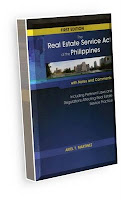August 19, 2020 | 12:06 am
The Bureau of Internal Revenue head office in Quezon City — BW FILE PHOTO
By Beatrice M. Laforga, Reporter
THE Bureau of Internal Revenue (BIR) has revised the rules on the imposition of tax on the sale, barter or other disposition of shares of stocks that are not listed in the local bourse to clarify how the fair market value (FMV) of shares will be determined.
BIR Commissioner Caesar R. Dulay issued on Monday Revenue Regulations (RR) No. 20-2020 amending RR No. 6-2013’s provisions on taxes imposed on the disposition of shares of stocks that are not publicly listed.
The new rules state that for the common shares of stock, the book value will now be based on the latest financial statements as the prima facie fair market value of the shares.
“This is a welcome development (long overdue). Prior to the RR, in determining the FMV of the shares, there is a requirement to use the adjusted net asset (ANA) method where all assets and liabilities are adjusted to FMVs,” said Maria Lourdes P. Lim, the tax managing partner of Isla Lipana & Co., PwC Philippines, in a mobile phone message on Tuesday.
The new rules also determined the preferred shares of stock to have the liquidation value, which is equal to the redemption price of the shares as of the nearest transaction date, as the fair market value.
“In case there are both common and preferred shares, the book value per common share is computed by deducting the liquidation value of the preferred shares from the total equity of the corporation and dividing the result by the number of outstanding common shares,” the document read.
The BIR also said that the book value of the common shares or the liquidation of the preferred shares do not need to include the appraisal surplus from any property of the corporation that was not reflected in the financial statement.
“The latest audited financial statements shall be sufficient in determining the fair market value of the shares of stock,” it said.
The move is “more reasonable since it does not result in an overstatement of the FMV,” said Romeo H. Duran, president of Tax Management Association of the Philippines, Inc., in a text message.
Ms. Lim said before the RR 20-2020 was issued, the fair market value of the shares was usually higher, particularly for companies owning real properties as the “ANA method results in the upward adjustment of the value since the incremental increase in property is taken into consideration in determining the value of the shares.”
“For capital gains tax purposes, if the consideration for the sale of shares is lower than FMV, the difference is generally subject to donor’s tax unless it can be established that the transfer is made in the ordinary course of business, bona fide and [at] arm’s length,” she added.
The issuance will take effect 15 days after its publication in a newspaper.
_____________________________________________





